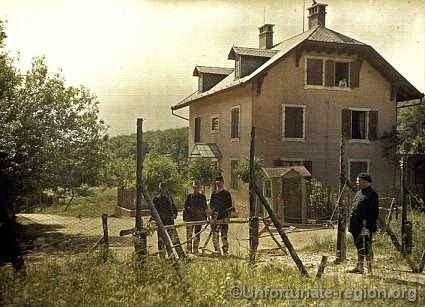The League of Nations, the
international organization formed at the peace conference at Versailles in the
wake of World War I,
recognizes the perpetual neutrality of Switzerland on this day in 1920.
Switzerland was a loose
confederation of German-, French-, and Italian-speaking communities until 1878,
when the French, under Napoleon
Bonaparte, unified the country as the Helvetic Republic and imposed
a constitution, which was enforced by French occupation troops. Bitterly
resented by the Swiss people, the French occupation ended in 1803, when
Napoleon agreed to a new Swiss-approved constitution and withdrew his troops.
The Congress of Vienna in 1815, which would determine Europe's borders until
the outbreak of World War I nearly a century later, recognized the perpetual
neutrality of Switzerland.
The Swiss considered
preserving this neutrality essential to Switzerland's economic and political
development. A new constitution, adopted in 1848, reinforced the neutrality
principle by outlawing Swiss service in foreign armies or the acceptance of
pensions from foreign governments. Neither the unification of Italy in 1861 nor
the birth of the German empire in 1871 shook the loyalty of the nation's
Italian or German population to Switzerland. With industrialization, fueled
largely by hydroelectric power, and the construction of an efficient railroad
network, Switzerland's economy continued to grow, spawning a thriving tourism
industry by the end of the 19th century.
Though Switzerland maintained
its neutrality during World War I, with German, French and Italian Swiss
standing firm to preserve their country's solidarity, a costly military
mobilization to protect the Swiss borders diverted most of the working
population to war-related work and brought economic hardship. After the war
ended, membership in the League of Nations—the international organization established
at the Versailles peace conference—was narrowly approved by Swiss voters after
a federal council opposed it. In February 1920, the League voted to recognize
the perpetual neutrality of Switzerland. The League also established its
headquarters in the Swiss city of Geneva, a tribute to the country's neutrality
as well as its relative economic and political stability, which has continued
to the present day.














































Did you know you can shorten your long urls with Shortest and receive cash from every visitor to your short links.
ReplyDelete